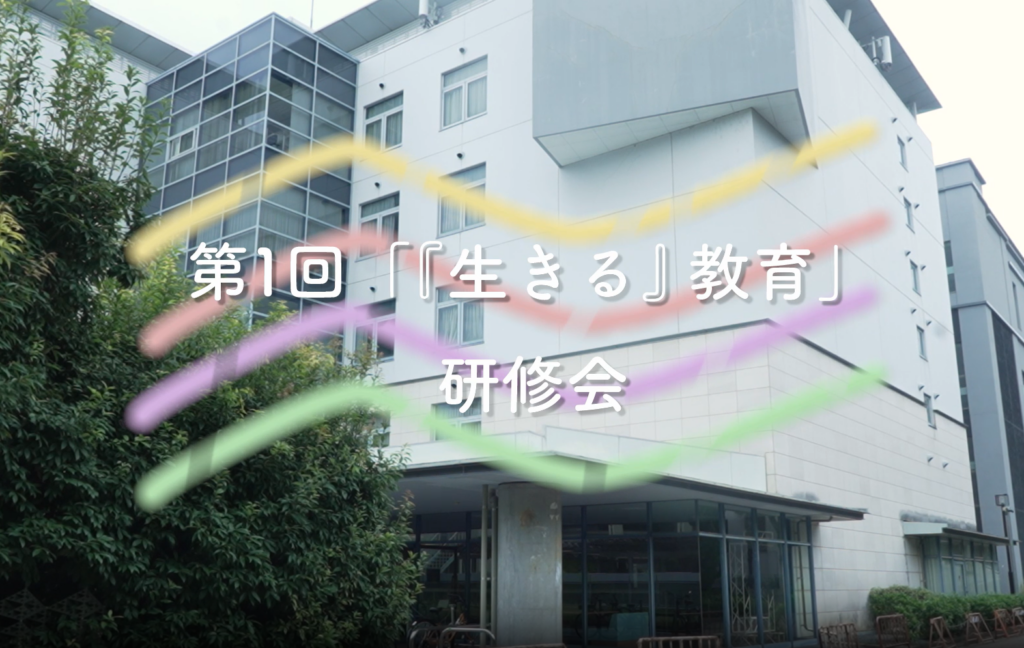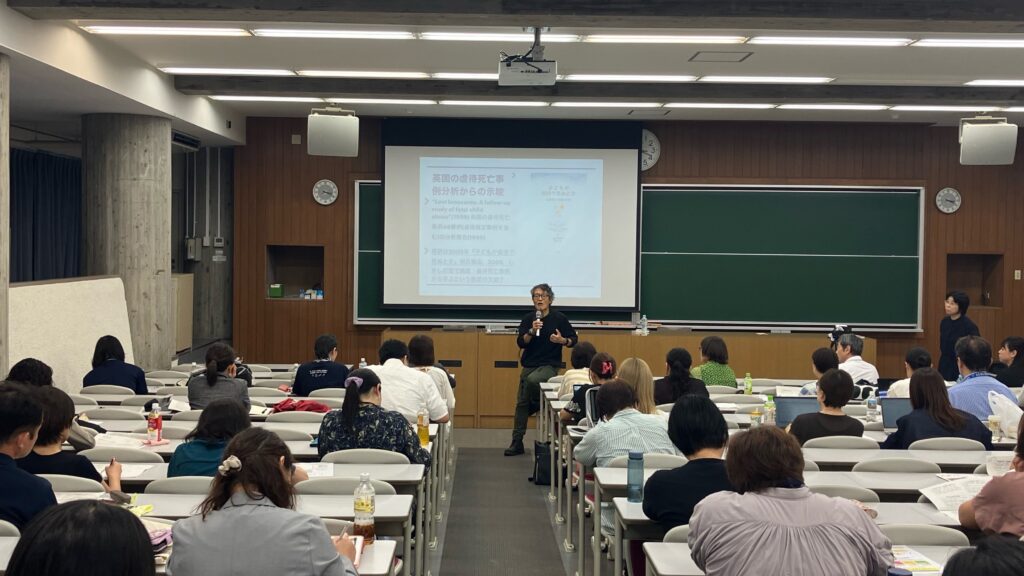The first "Education for Living" training seminar was held over two days, on Saturday, August 24th and Sunday, August 25th, 2024, as part of the project "Research, Development and Dissemination of Educational Approaches to Overcome the Cycle of Poverty, Inequality, and Abuse."
"Living Education" is an educational program that has been developed and implemented at Osaka Municipal Ikuno Minami Elementary School (currently Tajima Minami Elementary and Junior High School) to help children overcome difficulties in life (*1). At this training session, a workshop was held to learn teaching methods for those who want to put "Living Education" into practice. In addition, a lecture was given on the research and practical knowledge that formed the basis for the development of "Living Education".
In this article, we will tell you about the contents and details of the training session.
(*1) For details on "Living Education"Project PagePlease see.
Day 1
opening
The opening ceremony began with greetings from Professor Satoshi Saito, Dean of the Graduate School of Education at Kyoto University, and Kunihito Takaichi, Director of the Social Value Creation Promotion Department at Sumitomo Mitsui Financial Group.
Dean Saito spoke about "Living Education" from the perspective of a "society without punishment." A "society without punishment" is one in which people's behavior is guided by positive results (educational effects and rewards) rather than punishment. He said that "Living Education" can change individual behavior through an educational approach and realize a "society without punishment."
Director Takaichi spoke about the background and goals of the SMBC Kyoto University Studio. The SMBC Group has set "poverty and inequality" and "Japan's regrowth" as priority issues (*2). He expressed his hope that the development and dissemination of "Living Education" will lead to the elimination of "poverty and inequality" and "Japan's regrowth."
(*2) SMBC Group’s value creation process and key issues areHerePlease see.
Next, Professor Kanae Nishioka (Director of the Educational Practice Collaboration Center), project representative of the SMBC Kyoto University Studio, gave a talk on the overview of "Living Education" and the background behind its demand, and the training program began.

Lecture: Changing the future with "education for living" - What I learned from practicing with young people in juvenile detention centers and under guardianship
The first program of the training session was a lecture by Professor Yukiko Tsuji.
The title of the lecture was "Changing the Future with 'Living' Education' - What I Learned from Working with Young People in Juvenile Detention Centers and Underage Children." Professor Tsuji is working to address issues in the family, community, and society through supporting children who cannot rely on their parents. In his lecture, Professor Tsuji spoke about what is actually happening in the real world and what kind of support is required, interspersed with the voices of children he has worked with. He ended his lecture with the message that it is important to have "mental independence" to properly connect with society, and the "ability to accept support" by asking for help from others and being happy to receive support.
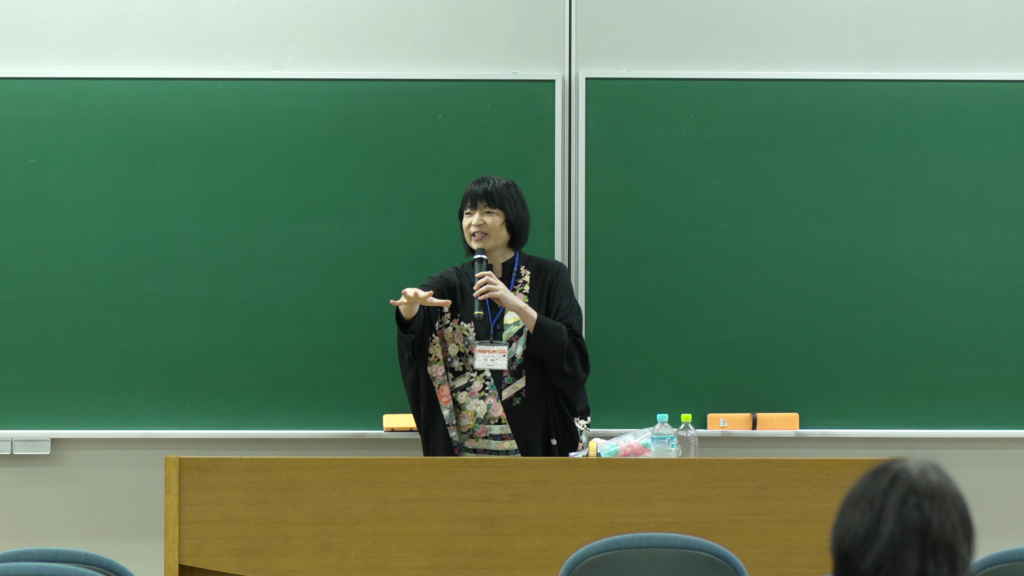
Workshop: "Do you know about the Convention on the Rights of the Child?"
The second program was a workshop by teachers who have been practicing "education for living" in the field. The instructors were Mikihiko Kimura and Misako Bessho. Based on the "education for living" program that is actually taught to third graders at elementary schools, they gave a mock lesson entitled "Do you know about the Convention on the Rights of the Child?"
Just like in real classes, the participants of the training session first learned about the Convention on the Rights of the Child. They then discussed "which rights are not being respected" by imagining specific situations that children face.
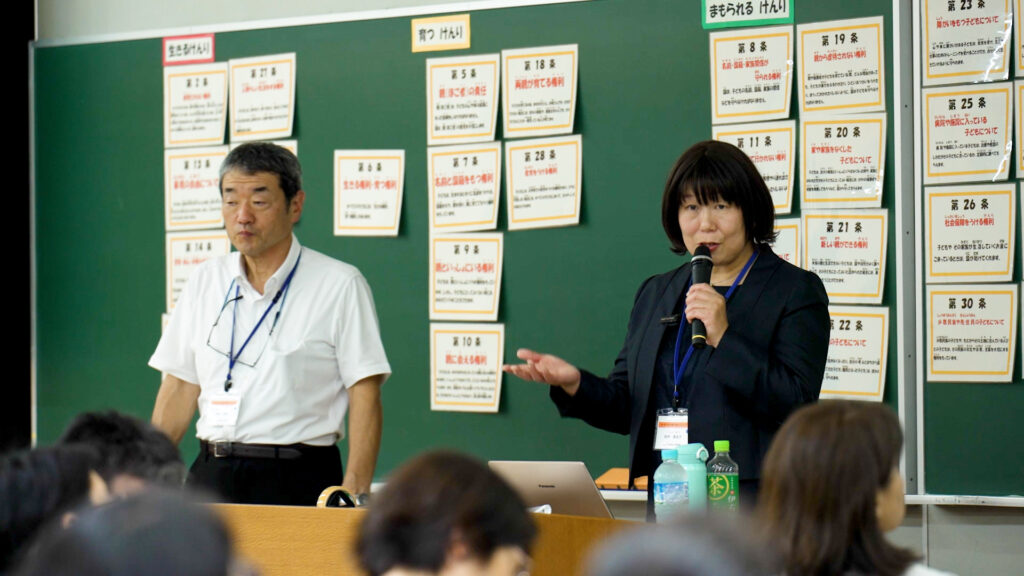
Lecture: Understanding and supporting the psychological impact of abuse on children (1)
The final program on the first day was a lecture on "Understanding and supporting the psychological impact of abuse on children." The lecturer, Professor Satoshi Nishizawa, is one of the professors who provided the logical foundations of "education for living." As a researcher in clinical psychology and clinical welfare, and as a professional who has worked with children in child welfare institutions, he spoke about the psychological impact that abuse has on children.
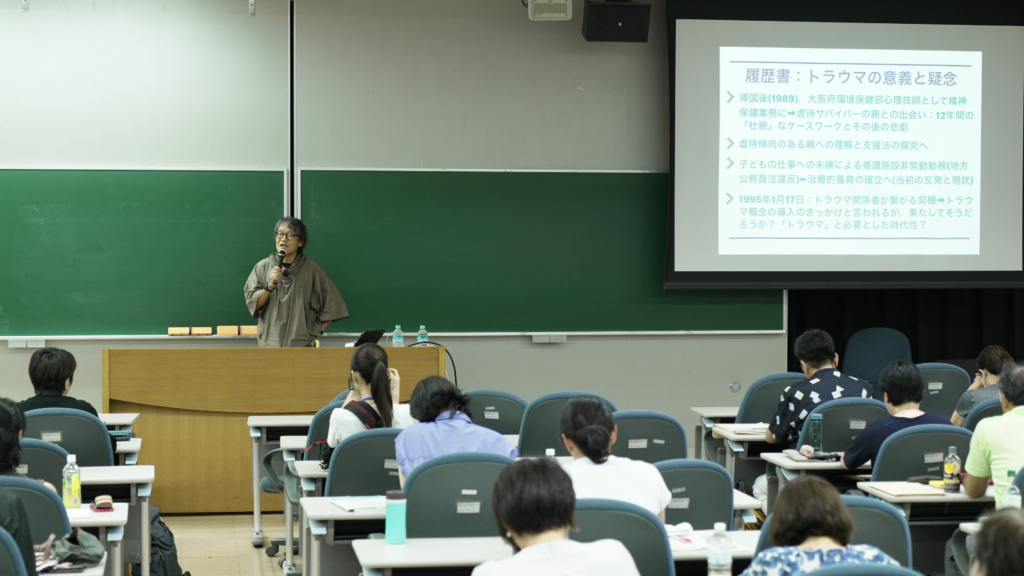
Day 2
Lecture: Understanding and supporting the psychological impact of abuse on children (2)
The first half of the second day was a lecture by Professor Nishizawa, following on from the first day. On the second day, he focused on attachment, which is closely related to children's psychology. He said that abused children often have difficulty forming attachments with their guardians and are unable to build good relationships with society. His talk supported the importance of "education for living" that creates a safe space in schools.
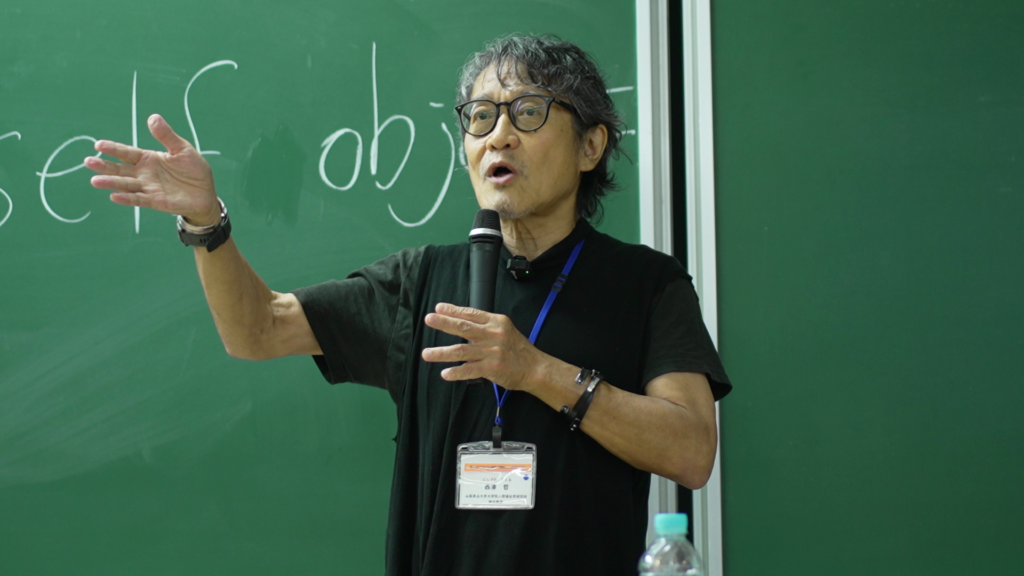
Workshop: "Real Dating Violence - Mechanisms of Control and Dependence"
The second half of the second day was a workshop by three practitioners of "Living Education" - Mr. Kenichiro Nishimura, Ms. Taeko Ono, and Ms. Azusa Tanaka. The theme was "Real Dating Violence - The Mechanism of Control and Dependence," which is what second-year junior high school students actually learn at Tajima Junior High School.
The participants learned what constitutes domestic violence and why it occurs while working on the workshop. The instructors also explained how students reacted in real classes.
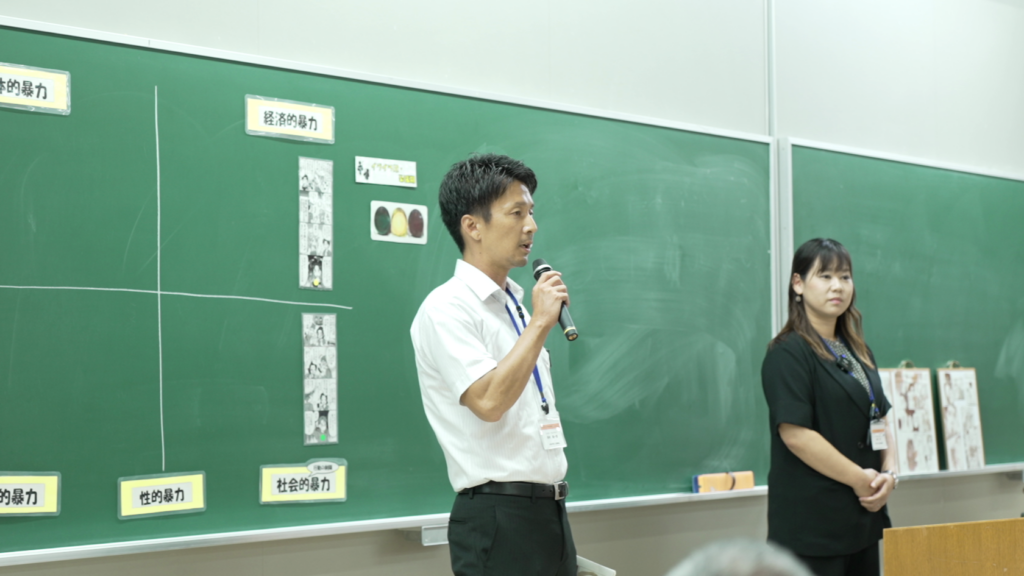
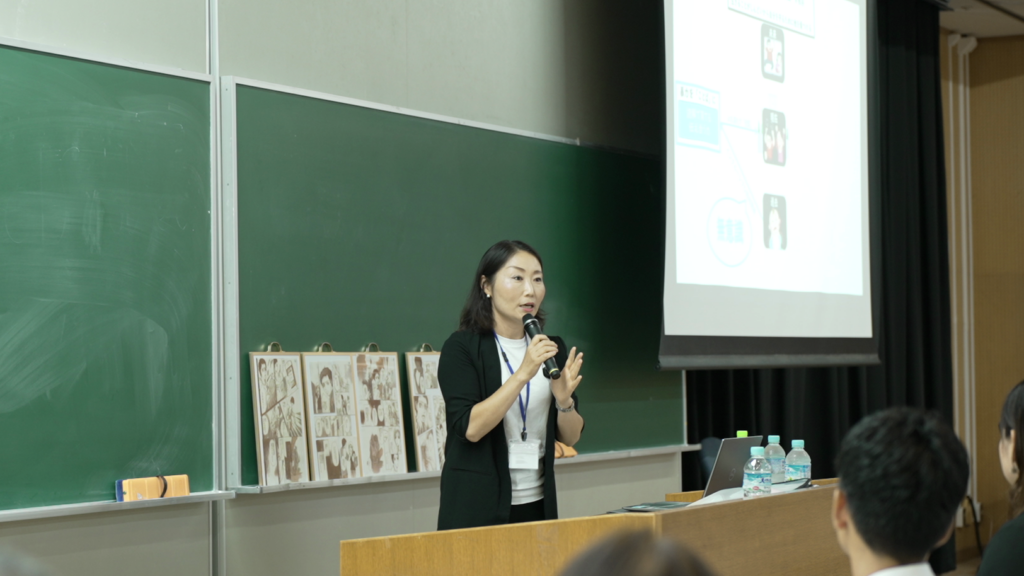
Closing
Finally, we received a speech from Mr. Kiyohiko Imagaki, principal of Tajima Minami Elementary and Junior High School. Mr. Imagaki spoke again about the "Living Education" initiative at Tajima Minami Elementary and Junior High School, and the two-day training came to a close.
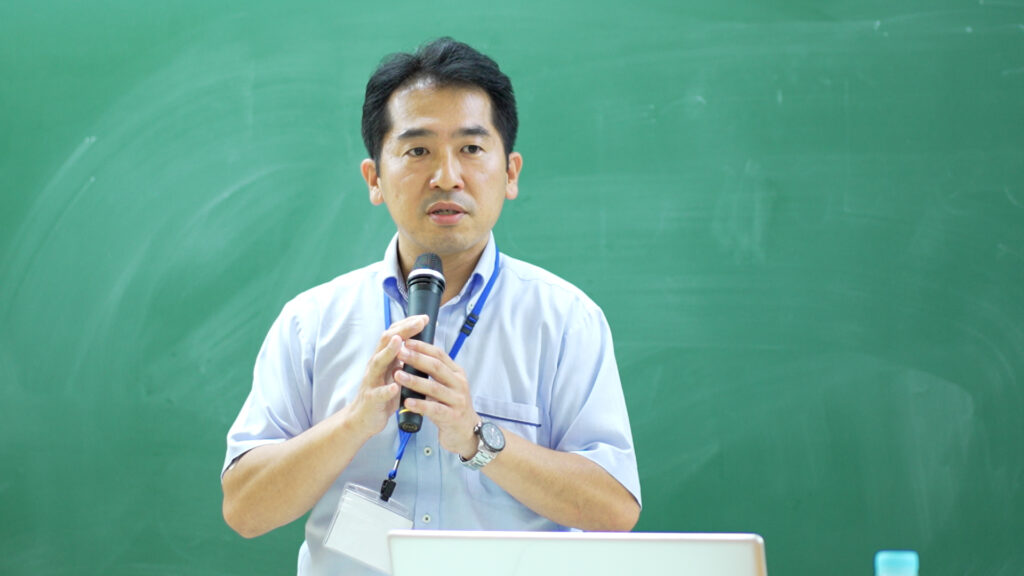
After the training session
In the survey conducted after the workshop, many people commented that they had learned a lot, that the lecture helped them to connect their experiences with theory, and that they would like to put 'education for living' into practice. This time, participants were not only from schools, but also from a variety of organizations, including welfare and medical workers, NPOs, and business people. Some participants said that they had been able to connect with people from a variety of professions, and that they had been able to hear the opinions of people in different positions than themselves. Thanks to the enthusiasm of the lecturer and participants, the workshop was very fulfilling.
The situation on the day was as follows:HerePlease take a look at the video posted on.
SMBC Kyoto University Studio plans to hold "Living Education" training seminars on a regular basis in the future. If you are interested, please check the event information.
